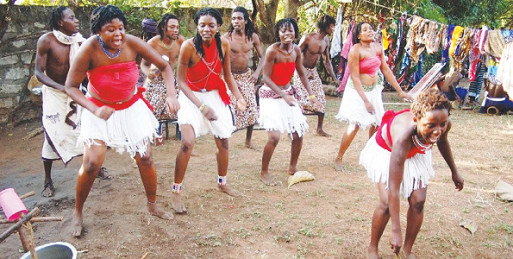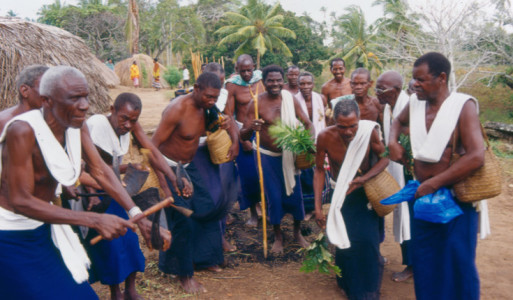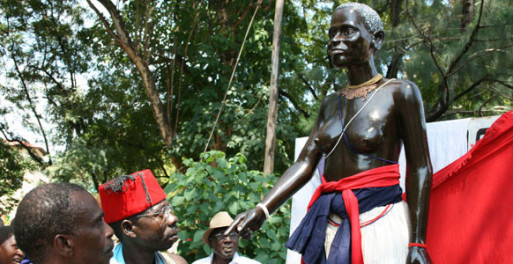The Giriama are an agricultural and hunter-gatherer sub-group of the larger Mijikenda ethnic group who live along the coast of Kenya. One of the distinguishing features of their cultural and spiritual life — and a main reason why they were able to retain their traditional practices in the face of British colonialism — is a funeral dance called Kifudu. This dance shares its name with a secret society of female elders; the Kifudu society is comprised of matriarchs whose spiritual duty is to cultivate good relations with ancestral spirits to promote the fertility of women and abundance for the entire community.
Kifudu as a funeral dance form is led by female dancers accompanied by male percussionists. The first portion of the dance is more performative, with a select group of dancers following specific choreography. The second part of the dance opens up to community involvement; everyone present, led by the female dancers, will dance together. The participatory nature of Kifudu is important in cultivating a sense of community cohesion in times of loss.
Kifudu is known in the Western world due in great part to the efforts of Mekatilili wa Menza, a Giriama elder and matriarch who led an uprising against British colonial forces in 1913 and 1914. By the early 1900s, British interests had permeated some aspects of Giriama governance, with Giriama members divided on subjects such as taxation, trade in palm wine and ivory, and the recruitment of young men to work on plantations and public works projects. Mekatilili would dance Kifudu as she went from village to village, and people would follow her in the dance. Afterward, she would speak about these issues and encourage a return to traditional governance and self-sufficiency with such charisma that she was imprisoned by the British — twice.
Perhaps Westerners could learn a thing or two about the power of dance in building strong and resilient communities who honor death as a cornerstone of what it means to be human and alive.

 Kifudu Funeral Dance of the Giriama People
Kifudu Funeral Dance of the Giriama People





 John Mulaney’s “Funeral Planning” on Netflix: No Real Plan
John Mulaney’s “Funeral Planning” on Netflix: No Real Plan

 Composting Bodies Is Now Legal in a Dozen States
Composting Bodies Is Now Legal in a Dozen States














